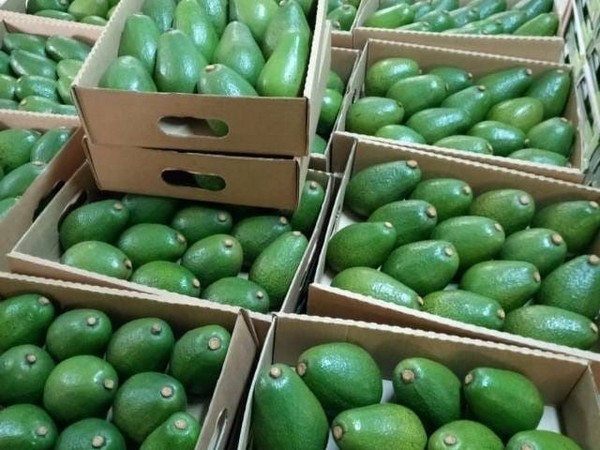Share this
Hundreds of smallholder avocado farmers in Murang’a County have received an early Christmas gift following a Kshs 31 million bonus pay-out by agribusiness firm Kakuzi Plc this week.
The farmers who are part of the Kakuzi 3,500 strong smallholder programme have begun to receive their bonus payments for quality Hass avocado fruit earlier delivered to the firm. Through the programme, farmers are encouraged to plant the Hass avocado variety due to its popularity and ability to attract reasonable prices in the international market.
As part of the smallholder programme, the listed agribusiness firm that recently released its Kakuzi 2020 Environmental, Social, and Governance (ESG) report directly engages, provides extension and marketing services for Hass avocado farmers. Kakuzi has 3,500 smallholder farmers, ten active smallholder groups, and seven active out-growers.
Started several years ago, the Smallholder programme, Mr Flowers said, is a deliberate Kakuzi community initiative geared at investing in the sustainable supply of quality fruit directly from the source. This way, he said, Kakuzi can ensure the full value gets back to the farmer and traceability can be managed.
Speaking when he confirmed the bonus payments, Kakuzi Plc Managing Director Mr Chris Flowers said the programme further gives smallholder farmers access to global markets and allows them to benefit from the risks and rewards of the international markets.
Alongside market access, the programme, which provides small-scale avocado growers with access to best practices and the international market for their fruits, has continued to attract farmers from Kakuzi’s local community in Murang’a county and Kirinyaga, Nyeri, Meru and Nandi counties.
“Ahead of the Christmas festivities, Kakuzi confirms that we have commenced bonus payments to our avocado smallholder farmers. The total Payment to smallholders and out-growers this season is Kshs 31.4 million, and this represents 87% of net returns,” Mr Flowers said.
He added that “Kakuzi has a large international market and wants smallholder farmers to access it. Therefore, we have upscaled the operations of our smallholder avocado farmers programme while boosting the global positioning of Kenyan avocados. The programme provides small-scale avocado growers with access to best practices and the international market for their fruit.”
The firm recently disclosed that it had invested more than Kshs 1.6 billion over the last four years to enhance its operations, expand production and maintain global standards.
The latest Kakuzi ESG report aptly titled ‘Future-proofing agriculture’ confirms that, at its Murang’a county-based agricultural production fields, the firm is part and parcel of the surrounding community. On an average day, Kakuzi employs 3,000 people, with more than 5,000 school children attending public school learning facilities within its boundaries. Local suppliers, the report adds, have been servicing procurement opportunities valued at more than Kshs 484 million annually.
At the launch of the Kakuzi 2020 ESG Report, Mr Flowers confirmed that: “Consistent with ESG standards, we have put money and human capital resources where our mouth is, and have over the last four years paid out over Kshs 900 million in dividends to our 1,300 shareholders and Kshs 260 million to smallholder avocado farmers, not including this year’s payment”





